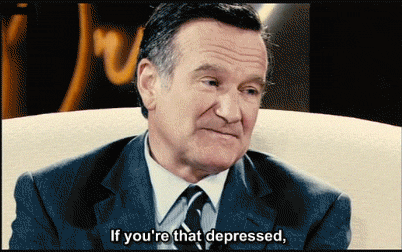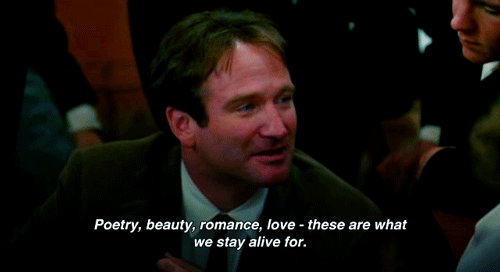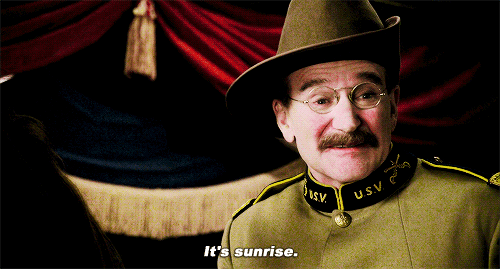Congratulations! You’re a college student. At university, you’ll make lifelong friends as you slave away side-by-side on that term paper and spend long morning-after sessions hovering over the dorm toilets together, taking turns holding back hair and rubbing backs. You’ll broaden your mind, studying everything from “Paradise Lost” and molecular biology to the best re-racking methods to achieve maximum ping-pong-ball-to-Red-Solo-cup potential. Maybe you’ll explore ancient castles while studying abroad or travel the country as a college athlete. By accepting your position amongst the intellectual minds of tomorrow, you have signed on to create the best possible version of yourself. You have also, you lucky duck, drastically increased your chances of suffering from anxiety or depression. Hurrah.
College students, those bright-eyed people skipping off to 8 a.m. lectures, are the leading demographic for depressive tendencies. According to the National Institute of Mental Health, over 30 percent of students suffer from depression so extreme that they find it hard to make it through the day. And most of those students never seek help for their depression.

The question is, why? Sometimes, students refuse to get help because they feel like a burden or fear the social stigma assigned to depression, like it’s a sign of weakness. That’s ridiculous, folks. Condemning someone for having depression is like condemning someone for having cancer. There isn’t an easy fix for depression. You don’t snap out of it, you can’t rub some dirt on it and walk it off. It’s a disease, and should be treated as such.
Outside of the social implications, many students never get help dealing with their depression because they don’t know that that’s what they’re going through. College is a veritable breeding ground for depression, but that actually makes it harder to pinpoint. While your genetics can increase your tendency for depression, it’s exacerbated by several external factors, such as significant life transitions (moving away from home and realizing that you have no idea how to be an adult), dealing with new relationships, self-doubt (failing that chemistry test), stress and financial worries (hello, job-hunting and student loans) and that little thing called alcohol, which takes everything you’re feeling and increases it tenfold.
Depression is a fickle thing. It’s tough to guard yourself against it when, as a student, your entire life is a trigger for it. What’s more, it’s difficult to prepare for because it’s almost impossible to predict.
One day, you’re hitting up bars and club meetings at the local independent bookstore, doing well in your classes, sleeping like a baby and making it to every sporting event. You’re taking an active role in your own life.
The next, you wake up in a glass jar. You look out of your invisible prison and observe as your life carries on without you. You stay in bed on game day. You miss the concert that you bought tickets for six months ago. You don’t answer your mom’s calls or your boyfriend’s texts. You watch your grades slip and your obligations float past. And the whole time, you don’t care. It’s quiet in the jar, and your breath fogs up the glass until you can’t even see what you’re missing anymore. It gets harder to breathe as the cap tightens. You feel tired, so tired, but now you can’t sleep. You should scream for help, pound on the glass until it breaks, but you don’t have the energy. The jar, the depression, it’s suffocating you and you don’t care.
That is depression. It’s a fog. It’s a gossamer web that flutters down and settles over your shoulders, an extra weight to lug around that no one else can see. It’s convincing yourself that you don’t matter, that you don’t deserve to be happy, that no one will miss you anyway. It’s the desire to take out that universal remote and press “pause” on everything. To take a few minutes, days, weeks to just stop, and sit, and not be. And damn, it sucks.
To all of you out there suffering from depression, remember that the stars are brightest after a storm. You’ve experienced the bad, so you can really appreciate the good. It’s a pretty shitty trade-off for those dark times, I know, but it’s something. You’ll smile wider on the good days because you know what it’s like on the bad ones. You’ll be the one cracking jokes because you know the real value of laughter. You’ll be a better friend and more tender and caring in your relationships, because you know what it’s like to perceive yourself as unimportant. Everything is relative. You’ll see the beauty in what’s around you because you’ve known the darkness.

But for those bad days, there are a few tricks to keep in your back pocket.
First and foremost, seek professional help. I’ll be the first to admit that that’s a difficult path to take, but there is nothing better than finding someone you can trust and telling them everything. Next up: Stop drinking. Alcohol and drugs, no matter how sparingly taken, both initiate and complicate depression. Cut them out. Better yet, replace them with healthy foods and lots of water. Healthy body, healthy mind; you know how it goes. Next, go to the gym. Go for a run. Get some gloves and hit a punching bag. Do something to get your blood going. Take a long shower, and go to sleep. Sleep long, sleep hard. Let your body and mind get back into sync and balance out. Then get up, put on your smile and face the day.
Know that you are not alone. This isn’t going to be easy, but you’ve survived everything that life has thrown at you so far. And damn it, you will survive this too.

Talk to someone:
United States National Suicide Prevention Lifeline: 1 (800) 273-8255



















